David Soul, Stephen King and the terrifying power of Salem’s Lot
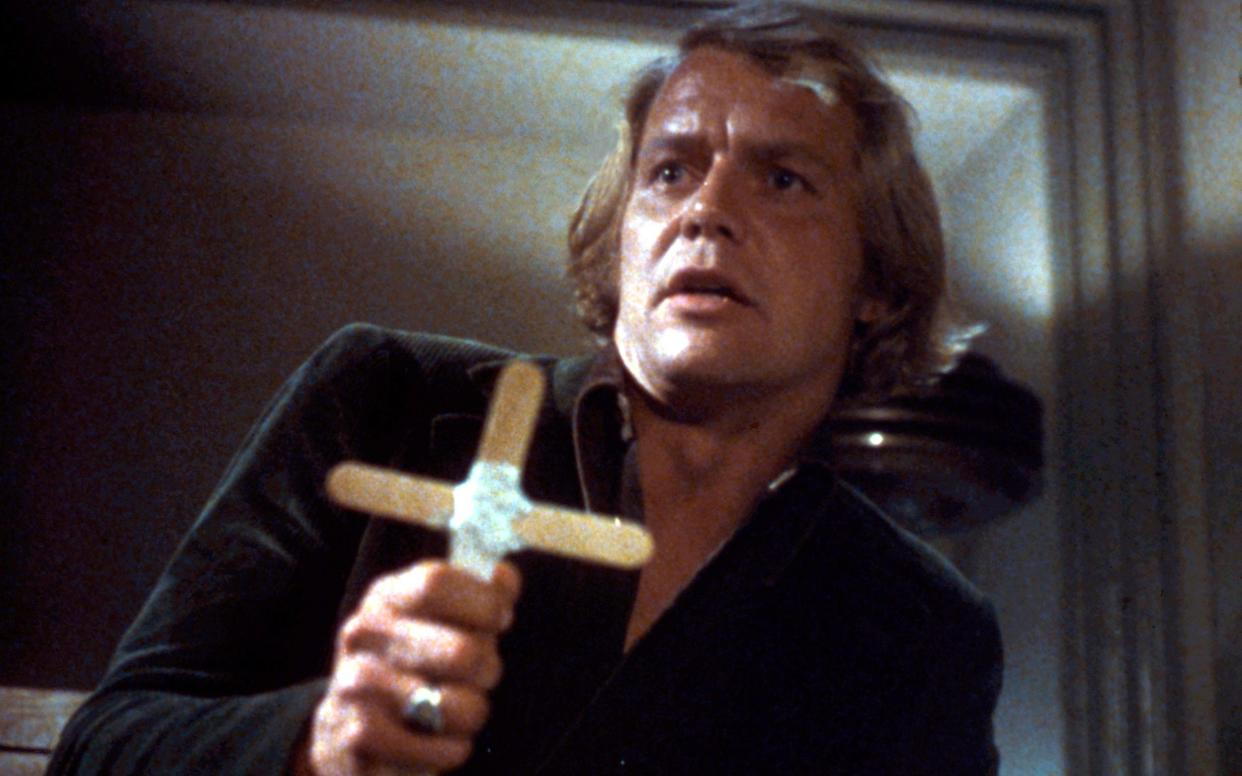
The actor and singer David Soul, who has died at the age of 80, will best be remembered for his iconic performance as the detective Kenneth ‘Hutch’ Hutchinson in the ever-popular TV series Starsky and Hutch. Soul tended to be associated with roles that played on his apparently straight-arrow persona honed in the show, which, as time went by, he tended to play up to for comic effect. The highest-profile parts that he took in later years, unsurprisingly, were self-parodying cameos in everything from the Irvine Welsh adaptation Filth to the likes of Little Britain and Holby City on British television.
Soul’s twinkly, likeable presence made him a natural fit for roles in comedy and light drama, but these unchallenging roles did his acting abilities a disservice. Not only had he managed to subvert his clean-cut looks as early as 1973, in which he played a treacherous police officer in the Dirty Harry picture Magnum Force, but his finest hour as an actor came when he starred in the lead role of the Stephen King adaptation Salem’s Lot in 1979, which was broadcast on CBS as a two-part drama just after Starsky and Hutch came to its conclusion. Had an impressionable teenager watched the miniseries because they were a fan of Soul’s, they would undoubtedly have been scared witless.
Although King was already a bestselling author with a considerable fanbase by November 1979, with several iconic novels including The Shining, Carrie and – naturally – 1975’s Salem’s Lot terrifying millions of readers worldwide, he was not yet a known quantity in TV and film adaptations.
Although Stanley Kubrick was hard at work filming The Shining, which would ultimately, and publicly, disappoint King upon its release in May 1980, the only film of his work that had been released prior to 1979 was Brian de Palma’s Carrie. It had been a considerable box office hit in 1976, as well as winning critical plaudits for the lead performances by Sissy Spacek as the telekinetic teen and Piper Laurie as her religious fanatic mother.
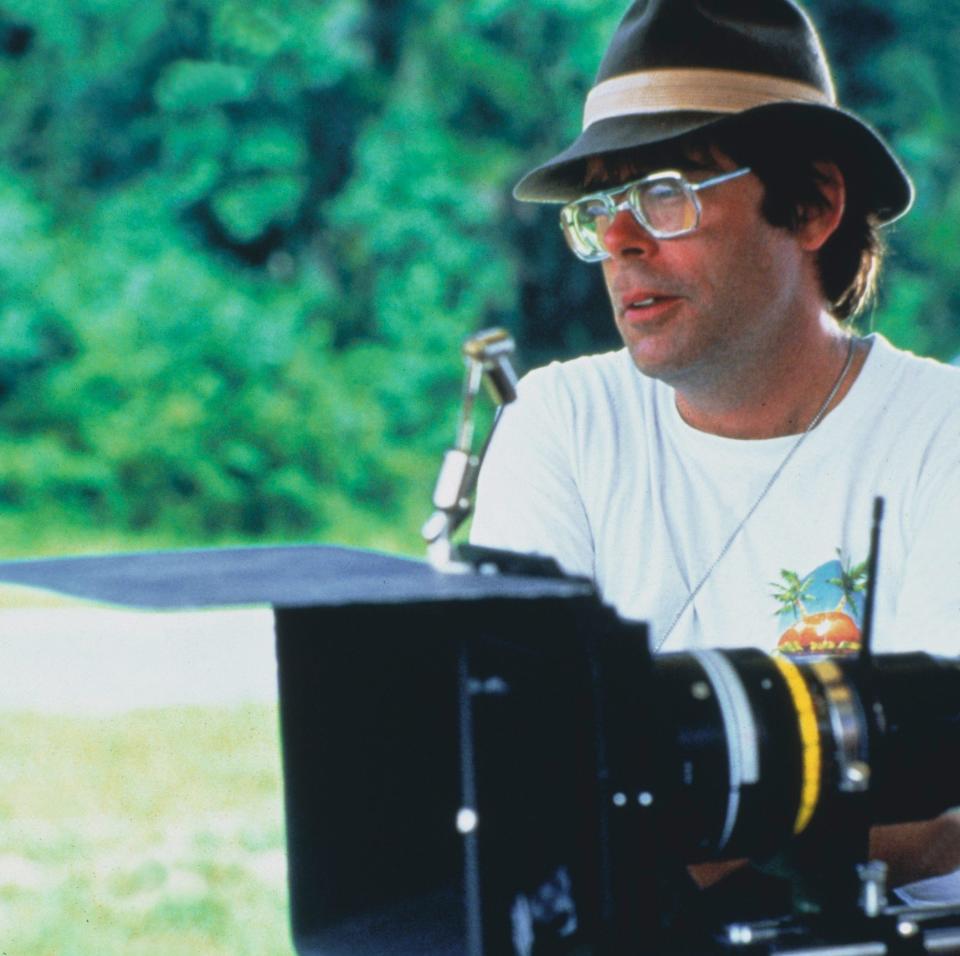
Any adaptation of Salem’s Lot had to live up to this precedent, and Warner Bros Television, who produced the film on a $4 million budget, were careful not to derail the King bandwagon before it had begun. After all, if it was done properly, it could be the beginning of a long and lucrative association.
Yet King was unenthusiastic at first, later saying that “TV is death to horror. When [Salem’s Lot] went to TV, a lot of people moaned and I was one of the moaners.” Initially, attempts to adapt it were dismal; King complained that “Every director in Hollywood who’s ever been involved with horror wanted to do it, but nobody could come up with a script.”
For it to succeed, it would have to take risks, and for them to pay off admirably, and terrifyingly. Its story of a successful writer, Ben Mears – something of a King trope throughout his novels – who returns to his hometown of Salem’s Lot, only to realise that vampirism is rampant in the town, whipped up by the charismatic and villainous Richard Straker, was rich in potential but would need to find the right filmmakers and stars. Otherwise the results could be disappointing, or even ludicrous.
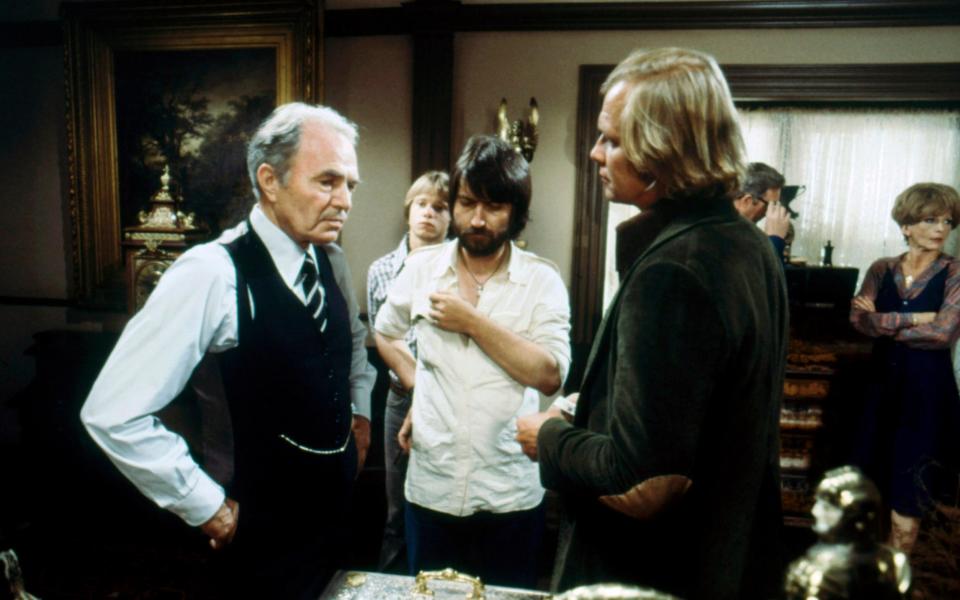
The hot horror director of the moment, Tobe Hooper, was hired, fresh from the vast commercial success of The Texas Chainsaw Massacre, and veteran screen villain James Mason would prove to be a seductive and terrifying Straker, He managed to make even the words “Good evening” sound frighteningly ominous. But in the lead role of Mears, Hooper and the screenwriter Paul Monash – a King veteran, having already produced Carrie – needed to find someone who was a familiar face but not over-associated with the horror genre, who could stand toe-to-toe with Mason and also provide a steadying figure that the audience might empathise with amidst the scares. The producer Richard Kobritz met with Soul, in what the actor later described as an appropriately “black, bleak” office, and offered him the role.
Soul was delighted to be acting opposite Mason, which he called “a real kick”, and the production was set in the town of Ferndale in Northern California. The crucial location was the Marsten House of the novel, a hilltop property with a reputation for being haunted which Mears is planning on writing a book about. An elaborate set was constructed outside Ferndale, in the style of a New England house, although as Soul said “they built the exterior, [but] it wasn’t a whole house…it was a fa?ade, and the interior was at the Warner Brothers lot back in California.
“One day, when we were preparing to shoot up at the house, we heard this horrible crash, and there was this car that had run into a telephone pole. When we reached the car, the driver had this look on his face like he’d seen something impossible, and sure enough, this man had lived in Ferndale for 30 years, and had never seen this before.” Soul would not be the only person aghast at what the production would conjure up there.
Several of Soul’s Starsky co-stars, including Juliette Lewis’s veteran character actor father Geoffrey and George Dzunda – later to meet a grisly end in Basic Instinct – were reunited with him in Salem’s Lot, and Soul enjoyed working with them. But he reserved his highest praise for Mason, who he called “absolutely a marvel…a legend, a real legend, someone who came out of the old school, and boy, you could tell the difference. He really knew his craft.” Belying his terrifying persona on-set, Soul praised Mason as “a joy to be with, and a joy to be around.”
The two may have been deadly adversaries on set, but when not filming, they would head to Mason’s trailer and play cards together, which Mason was a keen aficionado of. And the veteran actor was not above punning humour, either; he referred to Soul and his young co-star Lance Kerwin, who played Mark Petrie, a boy whose knowledge of horror film lore helps solve the mystery of Salem’s Lot, as “Lancesky and Hutch.”
One of the film’s most terrifying characters was that of Kurt Barlow, the Nosferatu-esque vampire who Straker has come to Salem’s Lot in order to resurrect. As played by the Austrian character actor Reggie Nalder, Barlow’s character was changed from the conventional-looking villain of the novel to a demonic apparition, on the grounds that, as Kobritz said, “I wanted nothing suave or sexual, because I just didn’t think it’d work; we’ve seen too much of it.” (The fact that he had the velvet-voiced Mason as his lead villain meant that suavity was also assured, too.)
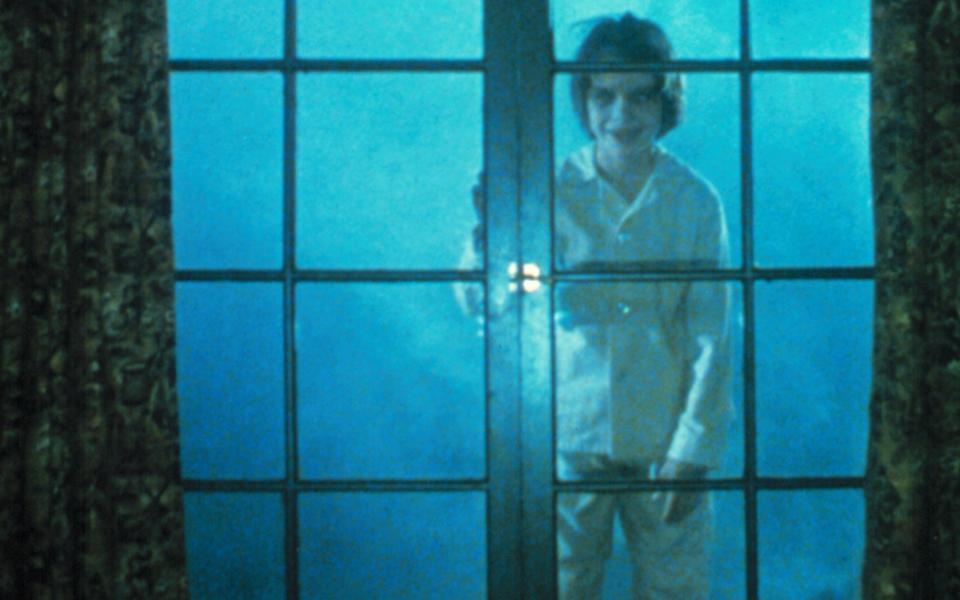
Soul remarked that “Nadler was born to play this role. He didn’t like it very much, because he had to wear these contact lenses, and his make-up kept falling off, so we had to stop and reset his face, eyes, teeth and eight-inch fingernails.” He quipped that Nalder may have been dissatisfied with the requirements of the role – the actor commented “The makeup and contact lenses were painful but I got used to them. I liked the money best of all” – whereas, in Soul’s knowing words, “I did it for the art.”
The series was packed full of immediately iconic scares. The moment in which the child vampire Ralphie Glick tries to enter his brother Danny’s room from outside, while scratching terrifyingly at the window, remains the most memorable, and has been alluded to in everything from The Simpsons to Eminem’s song Lose Yourself. Guardians of the Galaxy director and DC supremo James Gunn wrote, after Hooper’s death in 2017, that the filmmaker “created the moment that scared me the most as a child – that floating, dead kid tapping on the window.”
Bearing in mind the demands of television, rather than film, it largely eschewed explicit bloodshed in favour of what Hooper called “the overtone of the grave.” He said “A television movie does not have blood or violence. It has atmosphere which creates something you cannot escape – the reminder that our time is limited and all the accoutrements that go with it, such as the visuals.”
Soul enjoyed working with “the very fine director”, who he praised for being “very well prepared”. There were lighter moments, too. The actor celebrated his birthday on set; he later quipped, “they told me I had a good time, but I don’t remember a hell of a lot...I’m told I was enjoying it too.”
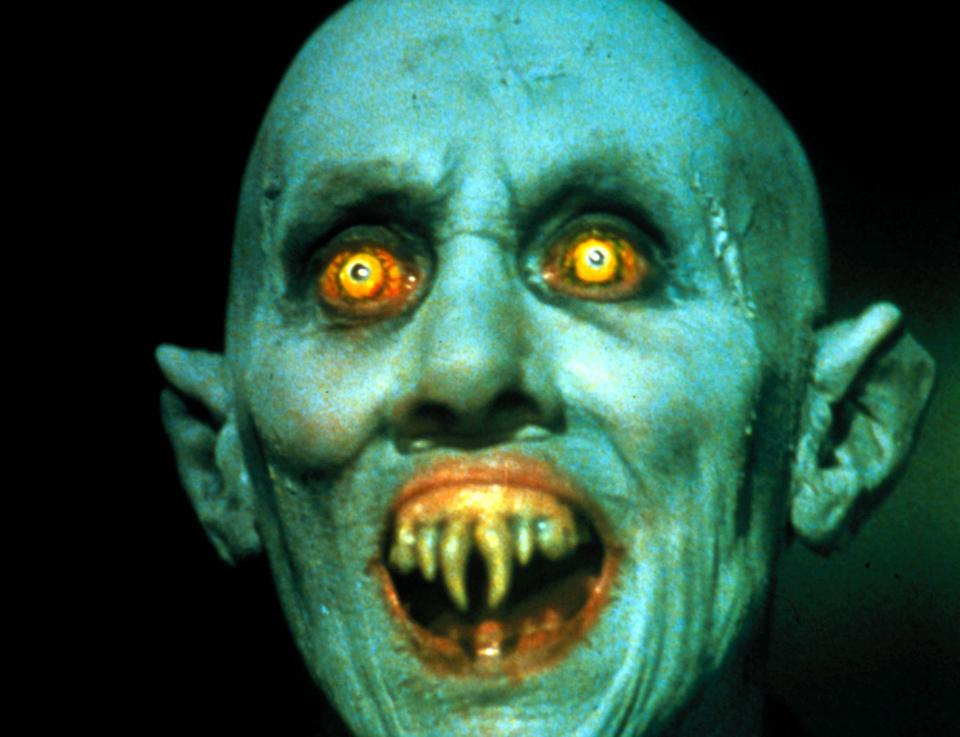
Salem’s Lot was enthusiastically received on its first screening, and was later followed by a sequel, Return to Salem’s Lot, and another 2004 miniseries adaptation, this time starring Rob Lowe. It has subsequently proved to be one of the most influential of all modern-day vampire stories, inspiring everything from such Eighties classics as The Lost Boys and Fright Night to Buffy the Vampire Slayer and King regular interpreter Mike Flanagan’s 2021 Netflix miniseries Midnight Mass.
And another film remake is planned, this time directed by It screenwriter Gary Dauberman. Yet it will struggle to surpass the original, which remains one of the most successful King adaptations, with the emphasis on suggestion and subtlety over bloodshed making it all the more terrifying.
As Soul put it: “Salem’s Lot is responsible for a whole new genre, particularly in terms of television. I think the film we did is the legendary film, the real thing, and everything else tried to copy elements of what we accomplished.” The obituaries will salute this versatile actor for being forever Hutch, but Salem’s Lot is surely his truest – and longer-lasting – legacy.
